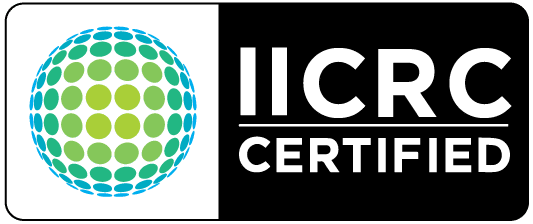Frequently Asked Questions
Frequently Asked Questions
We have built our client base by serving each and every client with respect, integrity and the utmost dependability. This, combined with our cost effective approach to each project, allows us to enjoy repeat referral business from a large and diverse network of contacts, such as attorneys, realtors, financial institutions, insurance carriers, oil companies and other environmental professionals.
Please take a few minutes to look through our frequently asked questions and their answers.
Tank Inspection / Investigation
This is the initial stage whereby a field technician will visit the site and note the location and contents of a known underground storage tank (UST). Typically, a site investigation is performed when a client is requesting an estimate to remove the UST.
This is the process whereby a field technician will visit the site and take soil samples to see if there is any oil in the soil surrounding the tank. Those samples are then sent out for testing and the results provide us with the ability to determine if any further action needs to be taken. For more info click here.
We at Meridian do not recommend performing a pressure or vacuum test on your tank. We would rather perform a soil investigation to determine the quality of soil around the tank. A soil investigation will not cause any damage to the tank itself, as a pressure test may. For more info click here.
Tank Removal / Tank Abandonment
Under most circumstances, we at Meridian would recommend the removal of a tank from the ground as opposed to abandoning it. We will only recommend abandoning a tank if it compromises the structure of the home/building and removal is not feasible. Removal will be less expensive and allow total closure with the state and your township. For more info click here.
The timeline to remove the UST from your initial phone call to our crew arriving on-site is approximately 2 weeks to 1 month. The longest delay is due to the time that it will take for your municipality to approve your permit. The day that we are scheduled to do the actual removal, we will only need to be on your property for 3 – 4 hours, pending municipal inspections. For more info click here.
Remediation
By definition, Remediation is the “act or process of correcting a fault or deficiency”. Therefore, in terms of an incident involving the contamination of soil or groundwater, Remediation would be the “clean up” and in most cases the removal of said contamination with the focus on restoration to a pre-contamination condition.
We here at Meridian are focused on the needs of our clients. It is our intention to make the process as simple as possible. Once the remediation process is complete, the site is restored to its original state. In most cases, your property will look better than its original state. Customer satisfaction is the ultimate goal and the driving force behind Meridian Environmental Services.
When there is a discharge or leak of heating oil either from an above-ground or underground storage tank, the oil impacts the soil immediately surrounding the tank. If that impacted soil is found to be non-compliant with NJDEP Soil Clean-Up Criteria then Soil Remediation will have to be performed. Typically, the area affected will be excavated and the contaminated soil removed and recycled off-site. If and when there is the case that excavation of the affected area is not feasible, an alternative method of treating the soil in place may be used to bring the soil back in compliance with NJDEP Guidelines.
When there is a discharge of heating oil that impacts the groundwater table to a degree that it falls in violation with NJDEP Groundwater Quality Criteria, Groundwater Remediation will have to be performed. The contaminated groundwater can be collected and removed by pumping it from the ground and disposing of it off-site, treating it onsite, or it can be treated in place via several “INSITU” methods. For more detailed descriptions of the “INSITU” Methods please visit this link for more information on this topic. For more info click here.
Since every job is different there is no specific amount set. However, we will provide a proposal with the estimated cost prior to any work.
Insurance
This is truly dependent upon each individual’s Homeowners Insurance Policy. In the event that a release of oil has occurred, Meridian does advise that you do notify your Homeowners Insurance immediately.
In the case involving a lack of insurance coverage, the client has the option to either pay out of pocket or apply for a grant. More information on these types of grants can be located at http://www.nj.gov/dep/grantandloanprograms/
Additionally, financing is available for Meridian Environmental clients. Please ask our office for further information about the application process.
Offered by your oil carrier, it is imperative that this type of coverage be acquired. For a few dollars a month you can obtain coverage up to $100,000 and assure yourself the necessary protection in case a leak in your tank does occur. Please contact your oil carrier for more information. Meridian is a ProGuard Certified Contractor.
Meridian Environmental Services, Inc., runs a turn-key operation; contracting the work at your property from start to finish. Including cosmetic construction on your home to full property restoration, landscape design, demolition, and environmental compliance.
Meridian covers the entire State of New Jersey.



